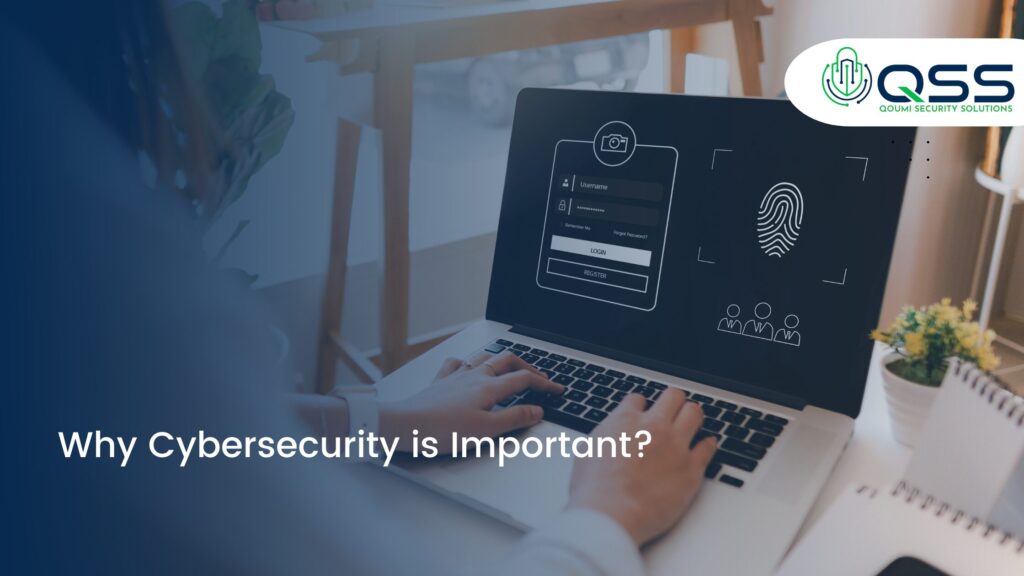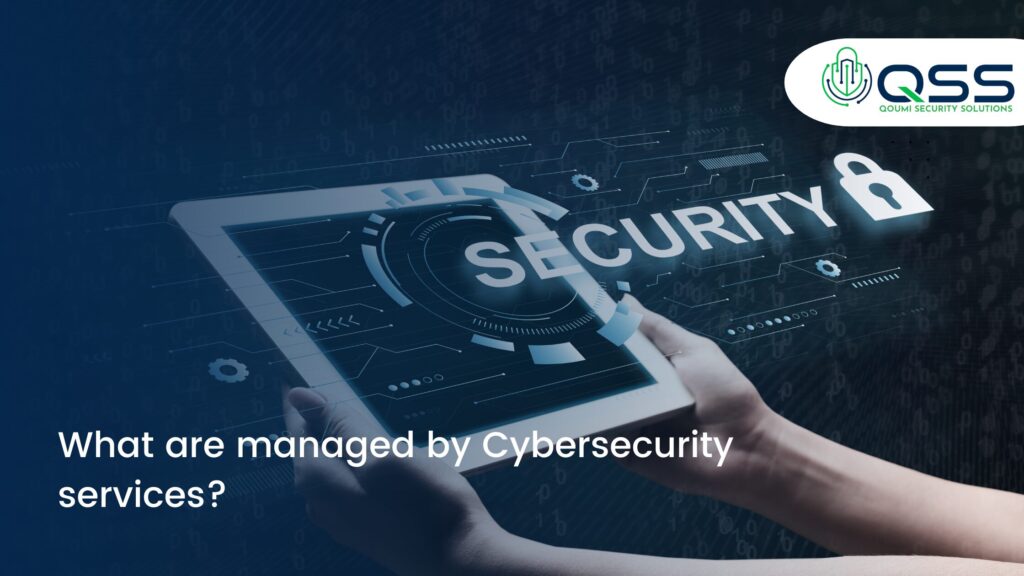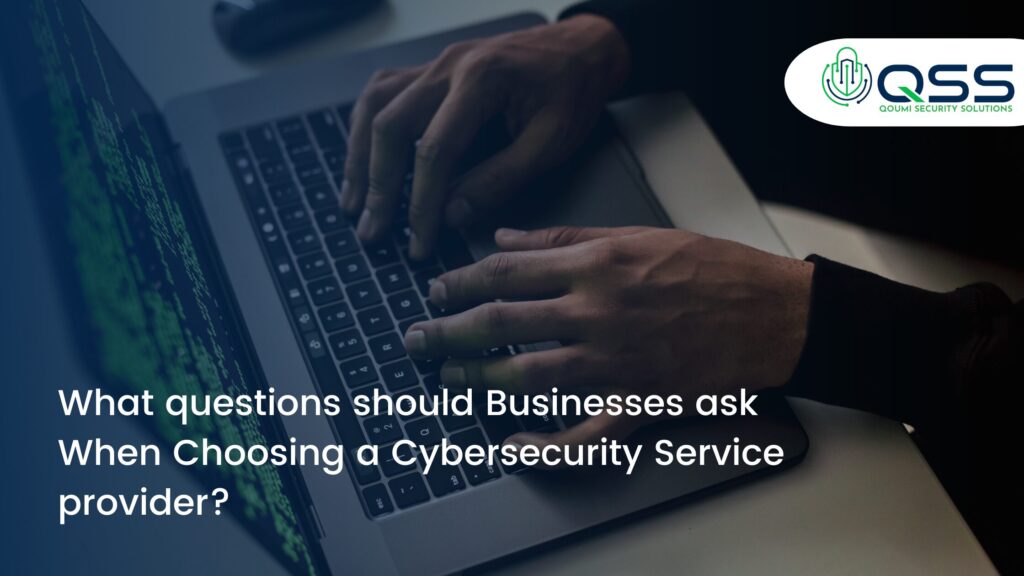Why Cybersecurity Is Important?

Why Cybersecurity Is Important?
In today’s hyper-connected world, cybersecurity has become essential for protecting our personal and professional lives. As we increasingly rely on digital tools for everything from banking to healthcare, cybersecurity safeguards our sensitive information from being accessed, altered, or stolen by malicious actors. Here are some key reasons why cybersecurity is more important than ever:
1.Protecting Personal Data
Our personal information, including passwords, credit card numbers, and social security details, is a prime target for cybercriminals. If compromised, this data can lead to identity theft, financial loss, and emotional stress. Strong cyber security practices help protect this information, giving people peace of mind while using online services.
2.Ensuring Business Continuity
For businesses, a cyberattack can mean severe financial and reputational damage. Cyber threats, like ransomware or data breaches, can halt operations, resulting in lost revenue and client trust. Investing in cybersecurity is essential for business continuity and the protection of valuable intellectual property.
3.Protecting National Infrastructure
Cybersecurity is not only about personal or business data but also about national security. Critical infrastructure like power grids, water supply, and transportation systems rely on digital networks that, if attacked, could disrupt entire communities and even endanger lives. A robust cybersecurity framework is essential to safeguard these critical systems.
Conclusion:
Cybersecurity is crucial for safeguarding personal data and protecting against digital threats. Prioritizing it ensures a secure and resilient digital future.
Which Cybersecurity Certification is Best?
Cybersecurity certifications are crucial for career growth, but choosing the right one depends on your experience and career goals. Here’s an overview of some of the top certifications available.
1.CISSP (Certified Information Systems Security Professional)
CISSP is a highly respected certification for experienced professionals aiming for leadership roles. It covers topics like risk management, cryptography, and network security, making it ideal for senior positions such as CISO or Security Manager.
2. CEH (Certified Ethical Hacker)
Offered by EC-Council, CEH focuses on ethical hacking and penetration testing. It teaches you to identify system vulnerabilities by thinking like a hacker, which is useful for professionals in offensive security roles.
3. CompTIA Security+
Security+ is an entry-level certification that covers a broad range of cybersecurity topics, such as network security and threat management. It’s perfect for beginners who want a strong foundation in cybersecurity.
4.CISM (Certified Information Security Manager)
CISM is for those interested in managing information security programs. It emphasizes risk management and aligning security programs with business goals, making it ideal for professionals seeking managerial roles.
5. CCSP (Certified Cloud Security Professional)
The CCSP certification focuses on cloud security, covering cloud governance, risk management, and architecture. With more businesses moving to the cloud, this certification is highly valuable.
6.Cisco Certified CyberOps Associate
Cisco’s CyberOps Associate certification is ideal for those interested in security operations. It focuses on skills needed for threat detection, monitoring, and incident response, particularly for those using Cisco technologies.
Conclusion:
The best cybersecurity certification depends on your career stage and focus area. CompTIA Security+ is great for beginners, while CEH is ideal for penetration testers. For leadership roles, consider CISSP or CISM. If you’re interested in cloud security, CCSP is key, and Cisco CyberOps Associate is best for those in security operations. Choosing the right certification will set you on the path to success in the cybersecurity field.
Where Cybersecurity Works?
Cybersecurity is crucial in protecting systems, networks, and data from cyber threats in today’s digital world. It operates across various sectors, ensuring safety at all levels.
1. Personal Devices and Smartphones
Cybersecurity secures personal devices, protecting sensitive information like passwords and credit card details from hackers and malware.
2. Corporate Networks and Data
Businesses rely on cybersecurity to protect their networks and sensitive data, using tools like firewalls and encryption to prevent unauthorized access.
3. E-Commerce Platforms
In online shopping, cybersecurity safeguards consumer payment information and ensures secure transactions and browsing experiences.
4. Cloud Services
Cybersecurity protects data stored on cloud platforms, ensuring encryption and secure access, so businesses and individuals can trust cloud services.
5. Healthcare and Medical Systems
In healthcare, cybersecurity defends patient records and medical systems, preventing unauthorized access to sensitive health information.
6. Government and Critical Infrastructure
Governments and critical sectors like energy and transportation rely on cybersecurity to safeguard national defense, infrastructure, and public services from cyberattacks.
7. Education and Research
Educational institutions use cybersecurity to protect student and faculty data, research work, and online learning platforms.
Conclusion:
Cybersecurity works across all sectors, from personal devices to government infrastructure, ensuring data and systems remain secure in our interconnected world.
How Cybersecurity Really Works?
In today’s digital world, cybersecurity is essential for protecting sensitive information, data, and systems from unauthorized access, theft, or damage. But how exactly does cybersecurity work to safeguard the vast networks, devices, and personal information we rely on daily?
Cybersecurity encompasses a range of practices, tools, and technologies designed to defend against cyber threats, such as hackers, malware, and phishing attacks. Here’s a brief overview of how cybersecurity really works:
1. Layers of Defense
Cybersecurity is built on the principle of defense in depth. This means that multiple layers of security are put in place to protect systems and data. These layers can include firewalls, encryption, antivirus software, and secure access protocols, all of which work together to create a robust defense.
2. Encryption and Data Protection
Encryption is a cornerstone of cybersecurity. It scrambles data so that only authorized parties can read it. This is crucial for protecting sensitive data, whether it’s being stored on a device or transmitted over a network. Even if cybercriminals intercept the data, it remains unreadable without the proper decryption key.
3. Authentication and Access Control
Ensuring that only authorized users can access systems is another key aspect of cybersecurity. Authentication methods such as usernames and passwords, multi-factor authentication (MFA), and biometric verification help ensure that the right person gains access to the right resources. Access control policies limit what users can do once they are logged in, ensuring they only have access to the necessary data.
4. Monitoring and Threat Detection
Cybersecurity teams use sophisticated tools to monitor network traffic and system activities for any signs of malicious behavior or potential breaches. Threat detection systems, such as intrusion detection systems (IDS), analyze patterns and behaviors to identify abnormal activities that could indicate an attack.
5. Incident Response and Recovery
Despite the best defenses, cyberattacks can still occur. In such cases, a rapid incident response is critical. Cybersecurity teams follow a well-defined process for detecting, containing, and mitigating attacks. Afterward, they work to recover lost or damaged data and restore services. Regular backups play a vital role in ensuring that critical information can be restored quickly in case of a data breach or ransomware attack.
6. Ongoing Updates and Patching
Cybersecurity isn’t a one-time solution—it’s an ongoing process. As new vulnerabilities are discovered, software and systems must be updated and patched to close potential security gaps. Keeping systems up-to-date is one of the most important ways to prevent exploitation by cybercriminals.
Conclusion:
Cybersecurity is a constantly evolving field that combines multiple technologies, practices, and strategies to safeguard digital assets. By utilizing layers of defense, encryption, authentication, threat detection, and incident response, cybersecurity works to keep both individuals and organizations safe from the ever-growing threat of cybercrime. As the digital landscape continues to expand, staying vigilant and proactive about cybersecurity will remain crucial in protecting our information and maintaining trust online.
Can Cybersecurity Work from Home?
With the rise of remote work in recent years, many professionals are asking if cybersecurity can be effectively managed from home. Traditionally, cybersecurity roles were confined to office spaces with direct access to on-site infrastructure. However, the evolving landscape of work has led to the question: Can cybersecurity professionals perform their duties effectively while working from home?
As businesses increasingly embrace remote and hybrid work models, the need to secure digital assets and networks from outside the traditional office environment has become more pressing. Cybersecurity is no longer just about securing internal office networks—it’s about protecting employees, data, and systems from a wide range of locations and devices.
1. Access to Tools and Resources
One of the biggest challenges for cybersecurity professionals working from home is access to the necessary tools and resources. Many cybersecurity tasks rely on specialized hardware, complex networks, and in-person collaboration. However, with the right cloud-based tools, virtual private networks (VPNs), and secure communication systems, most of these tasks can be completed remotely.
2. Monitoring and Threat Detection
Remote work does not diminish the need for continuous monitoring of systems and networks. Cybersecurity professionals can use remote monitoring software to detect and respond to potential threats in real time. Advanced security systems that use artificial intelligence (AI) and machine learning can help automate much of the monitoring, reducing the burden on human staff.
3. Collaboration and Communication
Effective cybersecurity often requires collaboration with other IT and security teams. While working remotely, secure communication platforms such as encrypted messaging apps or video conferencing tools ensure that teams can continue their work without compromising security.
4. VPNs and Secure Networks
One of the most vital tools for remote cybersecurity is the Virtual Private Network (VPN). VPNs allow remote workers to connect to a company’s internal network securely. In addition, cybersecurity professionals can use VPNs to simulate and monitor network traffic, ensuring that security protocols are followed.
5. Education and Training
Remote cybersecurity professionals must also stay current with ongoing security trends and new threats. Online training programs, webinars, and virtual conferences make it easier for them to continue their education while working remotely. Regular training for employees on security best practices is also critical to mitigate human error, a common cause of breaches.
Conclusion:
Cybersecurity can undoubtedly work from home. With the right tools, strategies, and a commitment to continuous learning, cybersecurity professionals can maintain robust security measures even outside the office. As remote work continues to be a part of the business world, cybersecurity will evolve alongside these changes, ensuring that digital environments remain safe and secure from any location.





